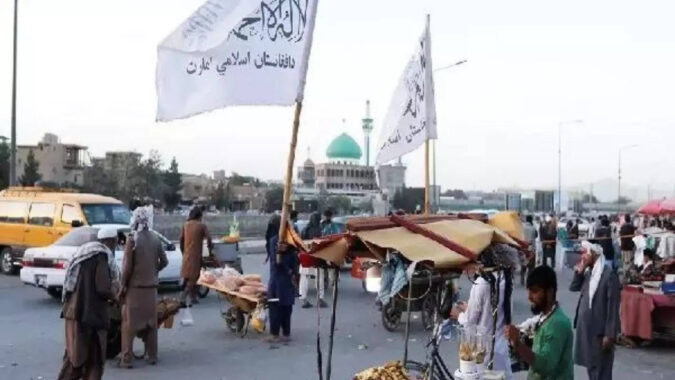ISLAMABAD: The Taliban’s snub to Pakistan on Doha Agreement has evoked strong reactions in Islamabad, which has accused the regime in neighbouring Afghanistan of facilitating terrorists operating on its soil and vowed to eliminate terrorism.
Responding to Islamabad’s assertion asking the Taliban-led Afghanistan government to abide by the Doha agreement, the latter said it had signed the deal with the US, not Pakistan, and denied the use of its territory for terrorist attacks against other nations.
The Taliban government’s rebuff came after Islamabad blamed the Afghan Taliban for harbouring Tehreek-e-Taliban Pakistan (TTP), which was allegedly responsible for the recent attacks on military bases in the volatile Balochistan province that left 12 soldiers dead.
Last Friday, the army’s media wing denounced the “safe havens and liberty of action available to TTP in Afghanistan”. The next day, defence minister Khawaja Asif, too, criticised the Taliban regime for “neglecting its duties as a neighbouring and fraternal country”, and for disregarding the counterterrorism commitments it had made in the Doha peace deal.
Responding to Asif’s remarks, the Taliban spokesperson Zabihullah Mujahid said during an interview with BBC Pashto that they didn’t sign the peace accord with Islamabad. “It was a document signed between us and the US,” he remarked.
Senior Pakistan People’s Party leader Farhatullah Babar termed Mujahid’s statement “disturbing”. “Does it mean the Doha Agreement binds the Taliban to rein in only some militants, not all?” he asked.
Agreeing with Babar’s interpretation, defence minister Khwaja Asif said Pakistan stood resolute in uprooting terrorism from its soil, whatever the source, “regardless of whether or not Kabul has the will to reign in militants from within its borders”.
When the Taliban had marched into Kabul in August 2021, Pakistan’s leadership was jubilant that a “friendly” regime had come to power the next door. The Taliban takeover in Afghanistan was even celebrated in Pakistan cities, but the spike in terror attacks since then has been a dampener.
Responding to Islamabad’s assertion asking the Taliban-led Afghanistan government to abide by the Doha agreement, the latter said it had signed the deal with the US, not Pakistan, and denied the use of its territory for terrorist attacks against other nations.
The Taliban government’s rebuff came after Islamabad blamed the Afghan Taliban for harbouring Tehreek-e-Taliban Pakistan (TTP), which was allegedly responsible for the recent attacks on military bases in the volatile Balochistan province that left 12 soldiers dead.
Last Friday, the army’s media wing denounced the “safe havens and liberty of action available to TTP in Afghanistan”. The next day, defence minister Khawaja Asif, too, criticised the Taliban regime for “neglecting its duties as a neighbouring and fraternal country”, and for disregarding the counterterrorism commitments it had made in the Doha peace deal.
Responding to Asif’s remarks, the Taliban spokesperson Zabihullah Mujahid said during an interview with BBC Pashto that they didn’t sign the peace accord with Islamabad. “It was a document signed between us and the US,” he remarked.
Senior Pakistan People’s Party leader Farhatullah Babar termed Mujahid’s statement “disturbing”. “Does it mean the Doha Agreement binds the Taliban to rein in only some militants, not all?” he asked.
Agreeing with Babar’s interpretation, defence minister Khwaja Asif said Pakistan stood resolute in uprooting terrorism from its soil, whatever the source, “regardless of whether or not Kabul has the will to reign in militants from within its borders”.
When the Taliban had marched into Kabul in August 2021, Pakistan’s leadership was jubilant that a “friendly” regime had come to power the next door. The Taliban takeover in Afghanistan was even celebrated in Pakistan cities, but the spike in terror attacks since then has been a dampener.
